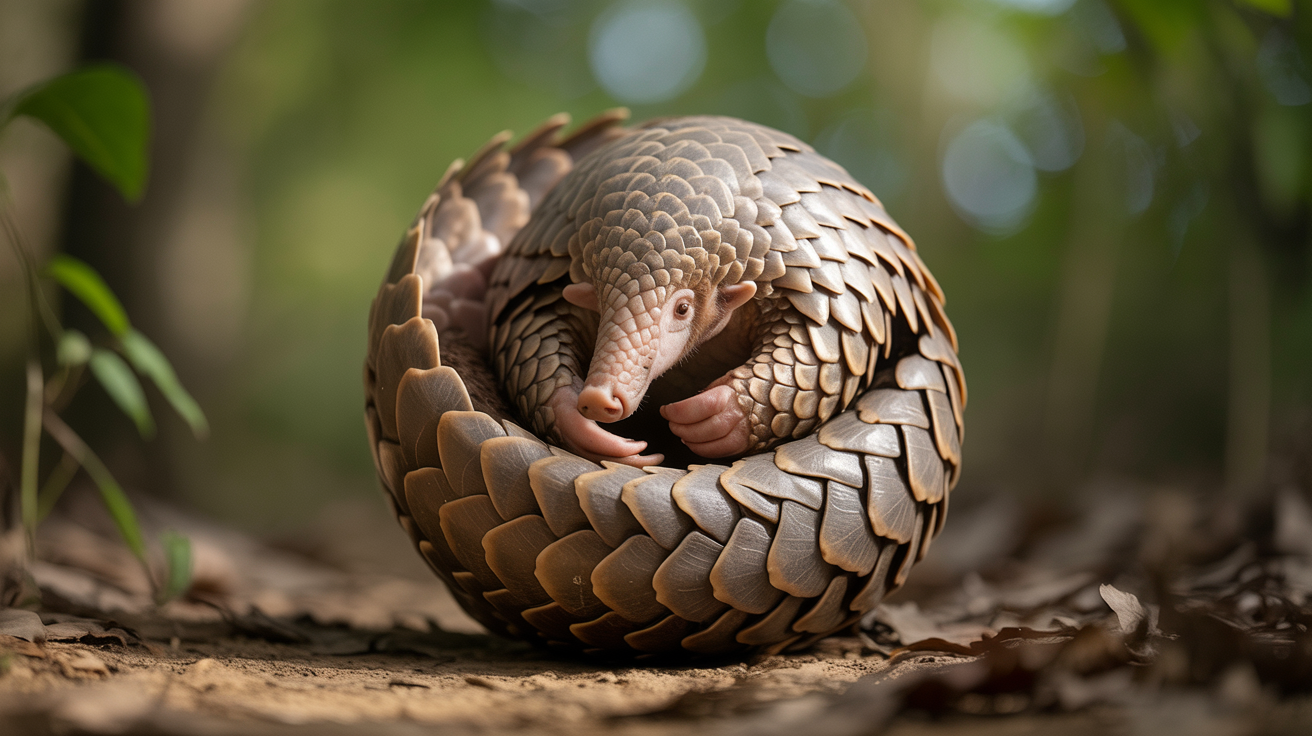Meet the Pangolin: Nature’s Armored Oddity
If you’ve never heard of a pangolin, you’re not alone. These shy, nocturnal mammals are rarely seen in the wild, yet they hold the dubious title of being the world’s most trafficked mammal. With their overlapping scales and endearing habits, pangolins are as fascinating as they are vulnerable.
What Is a Pangolin?
Pangolins are unique mammals found across parts of Asia and Africa. There are eight species in total: four in Asia (like the Chinese and Sunda pangolins) and four in Africa (such as the Temminck's and giant ground pangolins). Their most striking feature is their armor of keratin scales—the only mammal to have such a trait. When threatened, a pangolin will curl up into a tight, near-impenetrable ball, using its scales as protection against predators.
Fascinating Pangolin Facts
- Pangolins have no teeth! Instead, they use a long, sticky tongue—sometimes longer than their own bodies—to capture ants and termites.
- They can consume up to 70 million insects each year, making them vital for pest control and ecosystem balance.
- Pangolins are solitary and mostly nocturnal, spending their days in burrows or hollow trees and emerging at night to feed.
The World’s Most Trafficked Mammal
Despite their ecological importance, pangolins are in grave danger. According to the IUCN Red List, all eight species are threatened with extinction, with two Asian species listed as critically endangered. It’s estimated that over 1 million pangolins have been illegally taken from the wild in the past decade alone.
Why Are Pangolins Trafficked?
- Scales: In traditional medicine, especially in parts of Asia, pangolin scales are falsely believed to cure a range of ailments, despite no scientific evidence supporting these claims.
- Meat: Pangolin meat is considered a delicacy and status symbol in some cultures.
- Exotic Pets: The illegal wildlife trade also fuels demand for pangolins as exotic pets, though they fare poorly in captivity.
“If pangolin trafficking continues at its current rate, these remarkable animals could vanish from the wild within our lifetimes.” – Wildlife Conservationist
The Fight to Save the Pangolin
Thankfully, conservationists, governments, and local communities are rallying to save pangolins from extinction.
Global Conservation Efforts
- Legal Protection: All pangolin species are now protected under CITES Appendix I, banning most international trade.
- Anti-Poaching Initiatives: Ranger patrols, community education, and demand-reduction campaigns are helping to stem the tide of poaching.
- Rescue and Rehabilitation: Sanctuaries and rescue centers are working to rehabilitate confiscated pangolins and, where possible, release them back into the wild.
How You Can Help
- Support organizations focused on pangolin conservation, like Save Pangolins and Pangolin Africa.
- Raise awareness: Share information about pangolins with friends and family.
- Say no to illegal wildlife products and report suspicious activity.
Why Pangolins Matter
Pangolins play a crucial ecological role, helping to regulate insect populations and maintain healthy soil. Their disappearance would have ripple effects throughout their habitats, impacting countless other species and human communities.
A Symbol of Hope
The plight of the pangolin has become a rallying point for wildlife conservation worldwide. By protecting pangolins, we not only save a unique and ancient branch of the mammal family tree, but also strengthen efforts to combat illegal wildlife trafficking across the globe.
Every pangolin saved is a step toward a healthier, more balanced ecosystem—and a powerful victory in the fight against extinction.
Final Thoughts
Pangolins may be shy and elusive, but their story is one that deserves global attention. With continued action and awareness, there is hope that future generations will still encounter these remarkable "scaly anteaters" in the wild, thriving as a vital part of our natural world.


